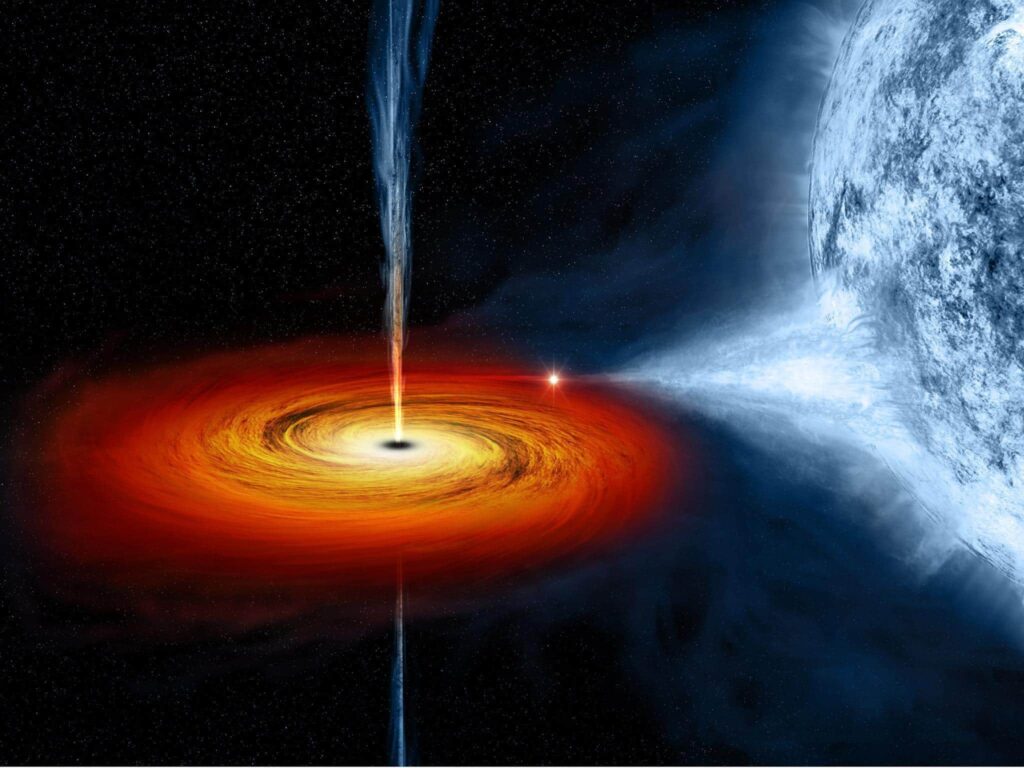Using gravity to see black holes

New attempt to observe the unobservable
- Dateline
- 2 February 2022
For decades scientists have speculated about the nature of black holes, but their existence has never been proven – yet. The theory says supermassive stars that have collapsed on themselves exert such powerful gravitational force, that even light can’t escape; hence the name ‘black holes’.
We know that light and other forms of electromagnetic waves like radio and X-rays travel at constant speeds, depending in their wavelength. But what travels faster than light? Perhaps gravitational waves.
Gravity is an enigma, a cosmic quantum force that isn’t very well understood, but that’s felt throughout the universe, keeping planets in orbit and spiraling galaxies in motion. When supermassive stars collide, they cause eddies, disturbances in the fabric of space-time, gravitational waves that we have only relatively recently been able to detect.
In 2018, scientists thought they might be able to observe black holes for the first time using a virtual telescope called Event Horizon, merging data from arrays placed all around the globe. They were disappointed; it wasn’t possible to conclusively separate the data from the noise.
In 2034 the LISA triplet of spacecraft will be launched, giving us an instrument effectively 2.5 million kilometres in size for sensitive detection of gravitational disturbances. That’s in the future.
Right now, in 2022 we have a new attempt to use gravity to ‘see’ objects where light can’t escape. A series of gravity detectors, placed in various locations around the planet, and controlled by advanced AI to remove any ‘natural’ disturbances from the Earth itself.
Scientists are pinning their hopes on this virtual machine. Once calibrated, we may be able to detect the movement of black holes in galaxies far, far away. In the age of GPS, autonomous cars and space travel, even minute deviations from the standard assumptions about gravity can have major consequences!
Links to related stories
- What will gravitational waves tell us about the universe? - New Scientist, 17 February 2016
- This Year, We’ll See a Black Hole for the First Time in History - Futurism, 10 January 2018
- ESA approves gravitational-wave hunting spacecraft for 2034 - New Scientist, 21 June 2017
- MindBullet: EARTH 'ATTACKED' BY THE SUN (Dateline: 13 December 2013, Published: 14 October 2010)
Warning: Hazardous thinking at work
Despite appearances to the contrary, Futureworld cannot and does not predict the future. Our Mindbullets scenarios are fictitious and designed purely to explore possible futures, challenge and stimulate strategic thinking. Use these at your own risk. Any reference to actual people, entities or events is entirely allegorical. Copyright Futureworld International Limited. Reproduction or distribution permitted only with recognition of Copyright and the inclusion of this disclaimer.